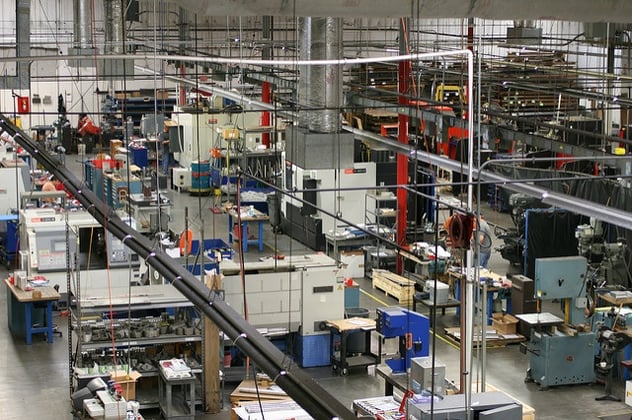An Enterprise Resource Planning (ERP) system is often thought of as the only system needed to manage and automate the back office functions of an operation. But, truly effective use of ERP software requires an integration of a number of tools that oversees all facets of an operation: product planning and costs, product development, HR, manufacturing, sales, marketing, inventory management and distribution. One important tool is a Manufacturing Execution System.
 ERP is the central, integrated repository of a manufacturing organization's institutional memory and its transactional database. The discrete pieces of information in the database regarding the production cycle are collected by a Manufacturing Execution System (MES). The two systems work together to accomplish major objectives.
ERP is the central, integrated repository of a manufacturing organization's institutional memory and its transactional database. The discrete pieces of information in the database regarding the production cycle are collected by a Manufacturing Execution System (MES). The two systems work together to accomplish major objectives.
You can look at it this way: ERP creates and manages a basic plant schedule and focuses on analysis of this plan against what actually happened in the past. Therefore, the ERP overview applies to longer time horizons such as months, weeks and days. It is the macro view of an operation that looks down into and organizes the details. MES, on the other hand, drives the manufacturing operation in real-time -- examining what is happening on the shop floor in minutes, hours, and shifts. It is the micro view that collects data on every aspect of the manufacturing process, such as alerting floor supervisors in real-time of missed opportunities or problems on the floor.
Let's take a look at the value MES brings to an operation:
- Exception management: Real-time notifications of issues and exceptions, providing the opportunity for supervisors to correct deficiencies during a shift
- Capture of pertinent production data: Customized lists of important data that interface with the ERP system
- Crystal-clear plan progress: Run-time data on what has been completed and what remains to be accomplished
- Ensures product quality with data transparency:The unbiased facts of events taking place during the manufacturing process are easily reviewed
Both ERP and MES are reactive systems, responding to what has happened in the past. To add an additional, proactive, tool that integrates into and adds value to the ERP system, an Advanced Planning and Scheduling (APS) module can be considered. Designed to optimize the scheduling process, APS takes input from various departments, compares them, and offers the manager an opportunity to create simulation models and projections.
Video: How ERP, MES, and APS Work Together on the Shop Floor
See how integrating ERP, MES, and Advanced Planning and Scheduling (APS) creates a closed loop between planning and operations. In this video, PlanetTogether APS is shown working alongside ERP and MES to turn real-time shop-floor data into optimized schedules, clear priorities, and faster responses to exceptions. It’s an ideal next step if you’re rethinking your ERP-only strategy and want to understand how MES and APS connect planning, execution, and continuous improvement in your manufacturing operations.
ERP Is Essential—But Not Sufficient for Modern Operations
In this article, you’ve seen that ERP is often treated as the only system manufacturers need—but in reality it is just one part of a complete operations stack. ERP provides the macro view of orders, costs, and long-range plans over weeks and months. MES provides the micro view, capturing real-time events on the shop floor in minutes, hours, and shifts and alerting supervisors to issues and missed opportunities.
Both are powerful, but they are also largely reactive: they record what has already happened. To close the loop between planning and execution, you need an Advanced Planning and Scheduling (APS) layer that uses data from ERP and MES to optimize the schedule, run simulations, and give operations a proactive way to manage capacity and constraints.
Our white paper, “WHY ERP ALONE IS Not the Answer,” explains exactly where ERP systems reach their limits and how APS fills the planning and scheduling gaps. It shows how adding APS on top of ERP (and alongside MES) gives manufacturers the decision-support and optimization capabilities they need to compete.
In this guide, you’ll learn how to:
- Clarify the roles of ERP, MES, and APS in a modern manufacturing architecture
- Move from reactive reporting to proactive, optimized scheduling driven by real-time data
- Use APS to create simulation models and what-if projections that let managers test different plans before changing the shop floor
- Improve on-time delivery, capacity utilization, and cost control by closing the loop between planning and execution
- Position APS as a strategic extension of your ERP/MES environment, not a disconnected point tool
If you’re recognizing the limits of an ERP-only approach and want a practical roadmap to a more integrated, future-ready operations stack, this white paper is your next step.